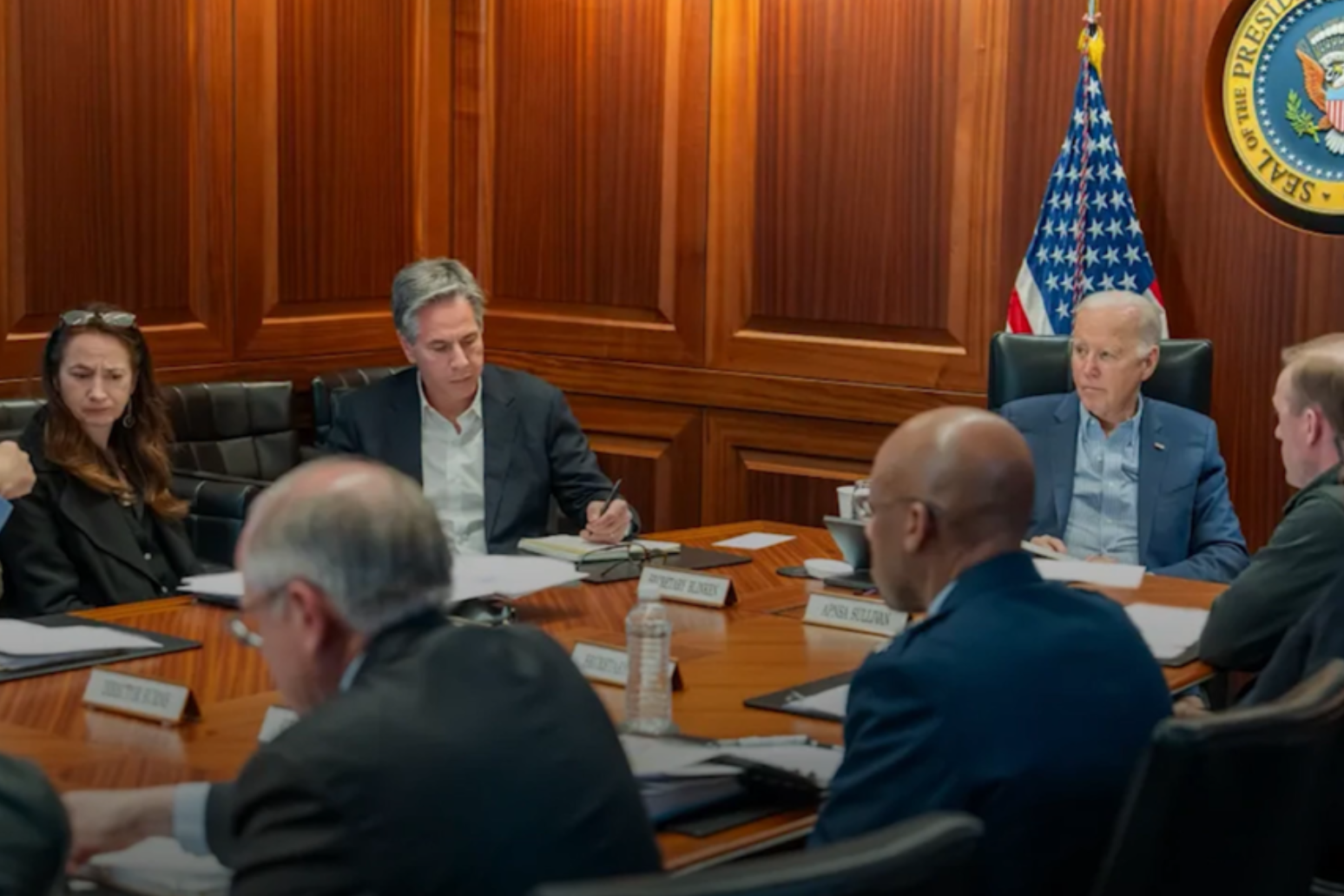
Sunak to join G7 leaders in urgent Iran talks
G7 leaders are to hold urgent talks after Iran launched an unprecedented attack on Israel that saw RAF jets deployed to shoot down drones from Tehran.
Rishi Sunak is expected to join US President Joe Biden on the call on Sunday amid fears of further escalation in the event of a possible Israeli counter-strike.
Israel said Iran launched 170 drones, more than 30 cruise missiles and more than 120 ballistic missiles early on Sunday.
It marks the first time a direct military assault has been launched by Tehran on Israel despite decades enmity dating back to the country’s 1979 Islamic Revolution.
The development threatens to become a major regional escalation after years of shadow wars fought between the two foes as the war in Gaza inflames decades-old tensions in the Middle East.
Britain and the US have offered staunch support for Israel, with the Ministry of Defence saying RAF warplanes in Iraq and Syria had been deployed to intercept “any airborne attacks within range of our existing missions”.
Israeli military spokesman rear admiral Daniel Hagari said 99% of more than 300 drones, cruise missiles and ballistic missiles had been shot down outside the country’s borders, with aircraft intercepting more than 10 cruise missiles.
Rescuers said a seven-year-old girl was seriously wounded in southern Israel, apparently in a strike, although they said police were still investigating the circumstances of her injuries.
The UK Prime Minister condemned “in the strongest terms” Iran’s “reckless attack” as he pledged to “continue to stand up for Israel’s security and that of all our regional partners”.
Cabinet minister Victoria Atkins said Britain is now putting “all of our efforts” into de-escalation in the Middle East, saying no one wants to see a “miscalculation or an escalation.”
Mr Sunak will join other G7 leaders on a call on Sunday with updates coming throughout the day, she confirmed.
She refused to be drawn on the extent to which RAF planes have been involved in protecting Israel from the Iranian attack, saying she could not provide a running commentary on a “live operation”.
“The Prime Minister held a Cobra meeting on Friday, he was kept updated throughout yesterday and last night and has had calls already this morning, and there is planned to be a G7 leaders call later today,” Ms Atkins told Sky News’ Sunday Morning with Trevor Phillips.
The “circle of knowledge” on developments in the conflict has to be “very, very tight”, she said when asked whether the Cabinet was consulted before RAF planes were authorised to protect Israel.
Mr Biden said he would convene the G7 talks “to co-ordinate a united diplomatic response to Iran’s brazen attack”.
Tehran had been threatening to attack since an air strike, which it blamed on Israel, killed two Iranian generals in Syria on April 1.
Israel Prime Minister Benjamin Netanyahu has spoken to Mr Biden, who said he had “reaffirmed America’s ironclad commitment to the security of Israel”.
Mr Biden said the US had helped Israel to “take down nearly all” of the drones and missiles.
Mr Netanyahu posted on X, formerly Twitter, declaring: “We intercepted. We repelled. Together we will win.”
Tehran has largely avoided directly attacking Israel, despite its targeted killings of nuclear scientists and sabotage campaigns on Iran’s atomic sites, instead targeting Israeli or Jewish-linked sites through proxy forces.
But it vowed retaliation for what it said was an Israeli strike on its Damascus consulate on April 1.
Labour leader Sir Keir Starmer said the party supported all measures “designed to restore calm” and prevent a wider regional war.
The Opposition has backed the action taken by the Government overnight, with shadow home secretary Yvette Cooper telling the BBC’s Sunday With Laura Kuenssberg programme: “We should be clear that if action hadn’t been taken to prevent those strikes, we would have seen further escalation and further risk of widening conflict.”
UN secretary-general Antonio Guterres, Canadian Prime Minister Justin Trudeau, French foreign minister Stephane Sejourne and German foreign minister Annlena Baerbock joined a growing chorus of western leaders urging against escalation.
“I urge all parties to exercise maximum restraint to avoid any action that could lead to major military confrontations on multiple fronts in the Middle East,” Mr Guterres wrote in a statement.
“I have repeatedly stressed that neither the region nor the world can afford another war.”
Published: by Radio NewsHub